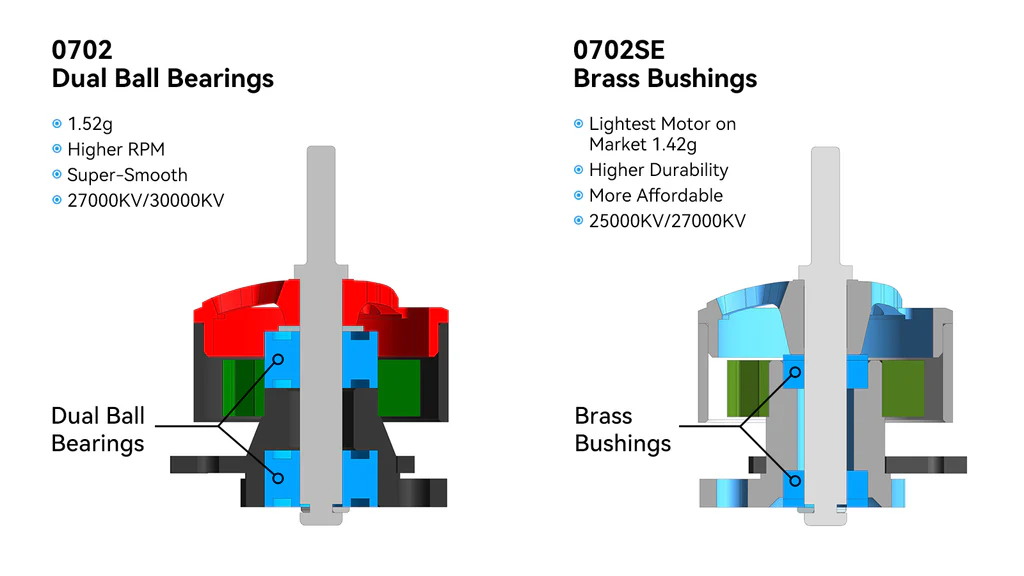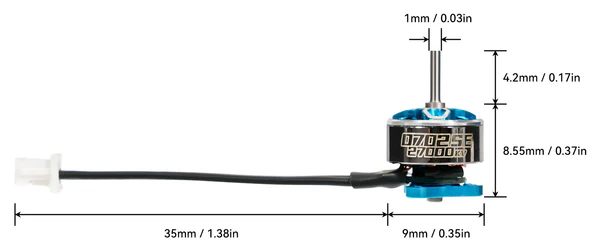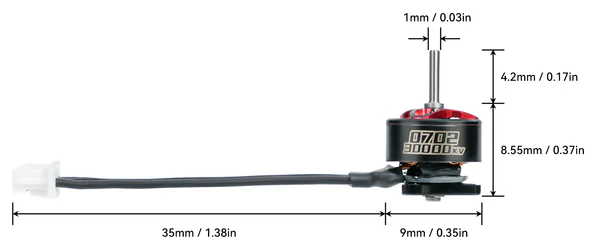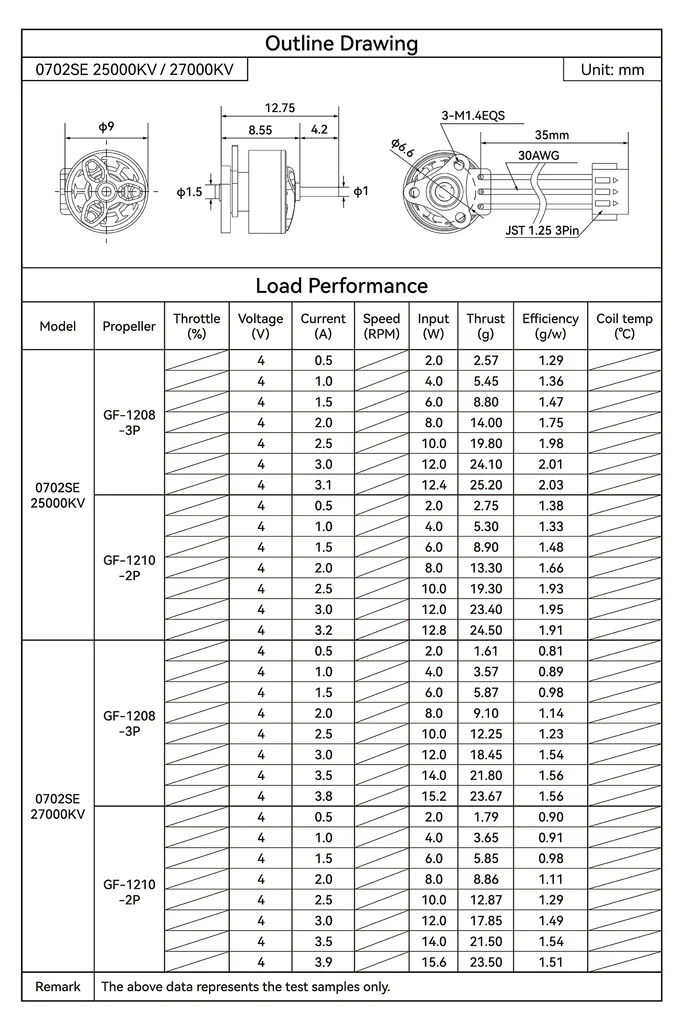Brushless motors are a crucial component in FPV drones, providing the necessary thrust and efficiency to achieve high-speed maneuvers and stable flights. Unlike brushed motors, brushless motors offer better power efficiency, durability, and higher performance, making them ideal for FPV racing, freestyle flying, and cinematic drone applications.
Understanding KV Rating in Brushless Motors
KV (kilovolt) rating is a key specification for brushless motors that determines how fast the motor spins per volt applied. The formula is:

Motor RPM = KV × VoltageLower KV motors provide higher torque and are suited for larger propellers, while higher KV motors offer greater RPM, making them ideal for high-speed applications.
Common KV Ratings and Their Applications:
| KV Rating | Suitable Voltage (LiPo) | Best Use Case |
|---|---|---|
| 1400KV | 4S-6S | Long-range cruising, cinematic flying |
| 2300KV | 3S-4S | Freestyle flying, general FPV use |
| 2600KV | 3S-4S | Aggressive freestyle and racing |
| 2800KV+ | 2S-3S | Micro drones, high-speed racing |
Popular Brushless Motors for FPV Drones
Here are some widely used brushless motors in the FPV community:
- T-Motor F60 Pro IV 1950KV – Ideal for freestyle and racing.
- EMAX RS2205 2300KV – A budget-friendly option for FPV pilots.
- iFlight Xing 2207 1800KV – Great for long-range and cinematic drones.
- BrotherHobby Returner R6 2306 2500KV – Preferred for high-speed maneuvers.

How to Choose the Right Brushless Motor
- Determine Your Flight Style: Racing drones need high KV motors, while long-range drones perform better with low KV motors.
- Consider the Propeller Size: Larger props require lower KV motors to maintain efficiency.
- Match the Voltage: Ensure the motor is compatible with your LiPo battery (e.g., 4S or 6S).
- ESC Compatibility: Your electronic speed controller (ESC) should support the motor’s power requirements.


Conclusion
Choosing the right brushless motor for your FPV drone is essential for achieving the desired flight characteristics. Understanding KV ratings, voltage compatibility, and use cases will help you make an informed decision.
Stay tuned for our next blog on Electronic Speed Controllers (ESCs) for FPV Drones!
Brushless motors are a crucial component in FPV drones, providing the necessary thrust and efficiency to achieve high-speed maneuvers and stable flights. Unlike brushed motors, brushless motors offer better power efficiency, durability, and higher performance, making them ideal for FPV racing, freestyle flying, and cinematic drone applications.
Understanding KV Rating in Brushless Motors
KV (kilovolt) rating is a key specification for brushless motors that determines how fast the motor spins per volt applied. The formula is:
Motor RPM = KV × VoltageLower KV motors provide higher torque and are suited for larger propellers, while higher KV motors offer greater RPM, making them ideal for high-speed applications.
Common KV Ratings and Their Applications:
| KV Rating | Suitable Voltage (LiPo) | Best Use Case |
|---|---|---|
| 1400KV | 4S-6S | Long-range cruising, cinematic flying |
| 2300KV | 3S-4S | Freestyle flying, general FPV use |
| 2600KV | 3S-4S | Aggressive freestyle and racing |
| 2800KV+ | 2S-3S | Micro drones, high-speed racing |
Popular Brushless Motors for FPV Drones
Here are some widely used brushless motors in the FPV community:
- T-Motor F60 Pro IV 1950KV – Ideal for freestyle and racing.
- EMAX RS2205 2300KV – A budget-friendly option for FPV pilots.
- iFlight Xing 2207 1800KV – Great for long-range and cinematic drones.
- BrotherHobby Returner R6 2306 2500KV – Preferred for high-speed maneuvers.
How to Choose the Right Brushless Motor
- Determine Your Flight Style: Racing drones need high KV motors, while long-range drones perform better with low KV motors.
- Consider the Propeller Size: Larger props require lower KV motors to maintain efficiency.
- Match the Voltage: Ensure the motor is compatible with your LiPo battery (e.g., 4S or 6S).
- ESC Compatibility: Your electronic speed controller (ESC) should support the motor’s power requirements.
Stay tuned for our next blog on Electronic Speed Controllers (ESCs) for FPV Drones!
Conclusion
Choosing the right brushless motor for your FPV drone is essential for achieving the desired flight characteristics. Understanding KV ratings, voltage compatibility, and use cases will help you make an informed decision.






GIPHY App Key not set. Please check settings